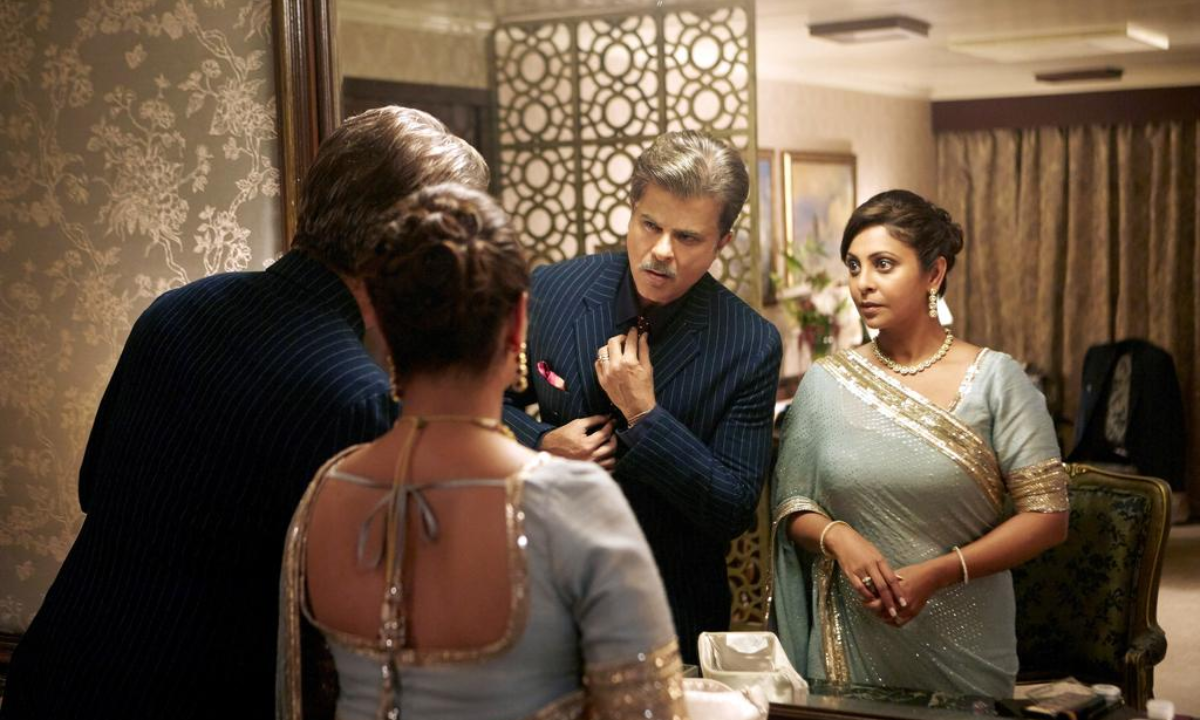Women Leaders Are More Empathetic, Open To Newer Ideas And Don’t Care For Gender Norms. The Future Is Female

In the past month, you would’ve come across several news pieces that report how women-led nations have had a much better coronavirus response strategy than those led by men. Whether it’s New Zealand, under Prime Minister Jacinda Ardern’s leadership, which is the first nation to become COVID-19 free. Or Germany, led by Chancellor Angela Merkel, which has reported far lesser numbers than its European counterparts. The statistics do show that female heads of state are bringing a new type of leadership that we’ve not seen before on such a scale. Their leadership is powered by empathy, love, receptiveness to new ideas and, most importantly, the absence of any rodomontade.
https://www.instagram.com/tv/B-JmCmCgeeE/?utm_source=ig_web_copy_link
What are female heads of state doing differently?
NZ PM Jacinda Ardern is hands down my favourite person right now. And I know I am not alone in idolising her for the decisiveness, empathy and calm composure she has exhibited while leading her country’s charge against a global pandemic. All this, while being a mother, conducting Facebook Lives for the citizens in comfy sweats after she put her toddler to bed. (She’s the second head of state to have delivered a baby during her term, the first being former Pakistan PM Benazir Bhutto)
https://www.instagram.com/p/CBHRdL1DGEc/?utm_source=ig_web_copy_link
Her maternal vibe with a jovial sense of humour really does work. When Ardern declared the Tooth Fairy and the Easter Bunny as essential workers, it wasn’t just endearing to children but adults too. Ten days after the Christchurch mosque terror attack happened, she passed gun laws banning most semi-automatic weapons and assault rifles. Hey US, are you listening? When she visited the attacked, she donned a headscarf as a gesture of respect for their culture as well as a show of solidarity, both of which would mean so much for those people at that moment.
Ardern’s composure when earthquake tremors were felt during her recent live interview is a perfect example of her governing style and how she handled the whole coronavirus situation. Ardern quickly imposed lockdowns and compulsory quarantine for travellers when there were a mere six cases in the country. She posted regular updates for the people, thereby building a sense of trust amongst them. And look at New Zealand now; successfully battling COVID-19 and all set to reopen fully.
Also Read: Jacinda Ardern Wanted To Do “A Little Dance” As New Zealand Is Declared Coronavirus-Free. She’s A Leader That Inspires Us
While Ardern is the poster child for effective female leaderships right now, there are several other female heads of state doing equally spectacularly in their powerful roles. Taiwan’s President Tsai Ing-wen was just as quick in anticipating and implementing measures to protect her people. Using technology and partnering with ethical hackers, Taiwan built apps with ‘mask maps’ that would tell people the exact inventory of masks in their nearby stores. When dealing with the spread of fake news about the virus, the Taiwenese government used memes to spread the facts, in an approach called ‘humour over rumour’.
https://www.instagram.com/p/CAVYOuJDLjx/?utm_source=ig_web_copy_link
Angela Merkel, Chancellor of Germany, has managed to keep the cases in her country lower than their European neighbours by strict early action, mass testing, updated healthcare facilities and building a sense of trust via transparency. Meanwhile, Iceland (which is one of my dream places to live), under the leadership of Prime Minister Katrín Jakobsdóttir, began early mass testing and quarantining, and even rolled extensive contract tracing. They haven’t needed to impose strict lockdowns or even shut schools!
Now, I know what you’re going to say. All these countries that I am talking about much, much smaller when compared with nations like the United States, the United Kingdom, China, Brazil or even India. Naturally, it’s an easier war to win. Unfortunately, this argument falls flat when you realise that if these nations, being smaller with a lesser population to worry about, could’ve been this quick to respond, shouldn’t the bigger, more powerful nations have had their strategies better handled earlier?
Why the heads of those states wait until March-April to roll out stricter measures and revamp their healthcare facilities is a whole different debate to be had. But let’s talk about why being a woman at the helm of things might be our best bet for a sustainable future.
What is different when women lead?
An article in the New York Times suggests that the fact that a country elected a woman to its highest governance position in itself vouches for its liberal values, or at least a receptiveness to newer policies. As yet, we haven’t seen female leadership in action in some of the most powerful countries of the world. But considering that we’re all hurtling towards a future that could see more such pandemics and climate change-related catastrophes, perhaps a female leadership might be just the fresh perspective we so need.
So what is different when women lead?
1. More empathy
Women leaders are likely to have a higher EQ (emotional quotient) and exhibit more empathy than their male counterparts. At least the ones we see in action have proven this to be true. They prefer a risk-averse approach, think about how policies and their decisions will affect the vulnerable sections of the population and are not afraid to flaunt their emotions.
It makes you wonder, could this be because women themselves have had to fight centuries of oppression and gender bias, which makes them more in tune with the sufferings of their people?
2. They’re open to newer ideas, and their outlook feels fresher
Women have been fighting archaic traditions for generations now. They want to bring about change, the want to usher in a new era. It’s probably why they’re more likely to consider policies and legislation that their male predecessors might’ve refrained from, and even adopt newer, more modern practices that employ technological advances. After all, it is this modernisation that has helped women have a voice and a platform.
https://www.instagram.com/p/B8dbdYmDlo9/?utm_source=ig_web_copy_link
Take climate change, for example. A study published in the European Journal of Political Economy by Elsevier has inferred that “Female representation leads countries to adopt more stringent climate change policies” and that female political representation is a rather underutilised tool for climate change action.
You won’t even have to look all that far. Closer to home, our very own former External Affairs Minister Sushma Swaraj led by example when she harnessed the power of social media (Twitter) and made bureaucracy more effective.
3. They don’t play the blame game
Whether it is Jacinda Ardern or any of the other fantastic women heads of state we’ve talked about, their styles of governance don’t seem to include a lot of boasting and blaming, and fanning their pride. It’s less about what the ‘opposition is doing’ and more about what they plan to do for their country. It’s about thoughtful deliberation, swift action and minimum inconvenience.
https://www.instagram.com/p/CA-8A9-hiEo/?utm_source=ig_web_copy_link
4. The ability to admit vulnerability vs. fake machismo
In the event that there is inconvenience, weakness or god forbid, defeat, women leaders are unafraid to show vulnerability and emotion. Look at POTUS Donald Trump, PM Narendra Modi, UK’s Boris Johnson, Brazil’s Jair Bolsonaro or North Korea’s Kim Jong Un. All men, maintaining machismo and a hard exterior all the time. They haven’t been accorded the liberty to show a crack in their armour. Even as we attempt to normalise vulnerability in men, it is female leaders who have this power that their male counterparts might never have.
5. They’re not bound by limiting gender norms
I believe we’ve got gender norms to blame for this. While female leaders are expected to deal with a crisis like this like caregivers, male leaders are expected to be tough soldiers leading armies into battle. Naturally, this changes their approach. Once in a while, we do get a Justin Trudeau. The Canadian Prime Minister’s style of leadership has been noted for being more empathetic compared to others.
https://www.instagram.com/p/B26-FSvgkB8/?utm_source=ig_web_copy_link
However, since the sanctioned idea of a ‘real man’ is someone who acts all macho and devoid of any emotion except strength and rage, it’ll be hard for male leaders to break that glass ceiling and govern differently.
Women leaders, on the other hand, aren’t restricted. Although, they are expected to act more like men. And the true mantra of success that is common to all these women leaders who’ve been killing it so far is this—they haven’t tried to act like men. They’ve revelled in their womanhood, drawn strength from it in fact, and let the female experiences that have shaped them direct their decision making.
And that has made all the difference.
Why we’re going to need more women leaders now
The world is going to shits right now, excuse the expression. And it’s likely to get worse before it gets any better, if it gets better. But nihilistic outlooks aside, we’ve seen what men have done when unchecked power was given to them. Maybe it is time for a new approach, one of equality, empathy and peacemaking instead of ‘mine’s bigger than yours’. While revolutions rage across the world—for better representation, climate action, safety for women, children and minorities, sustainable development—women are at the centre of all the action. They’ve been listening; they’ve got untapped potential; and they’re ready to flex it in positions of national and international importance.
Women are what we truly need to truly salvage this abysmal century.

















